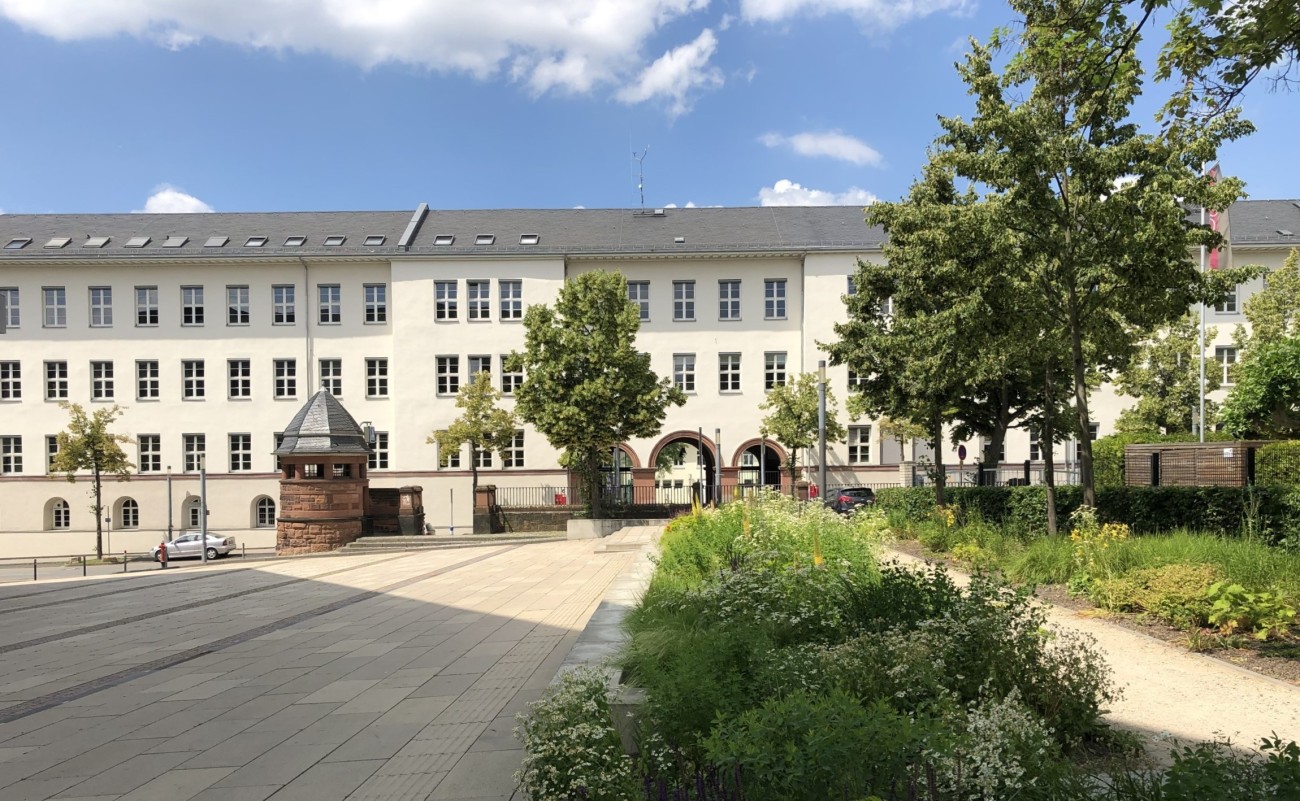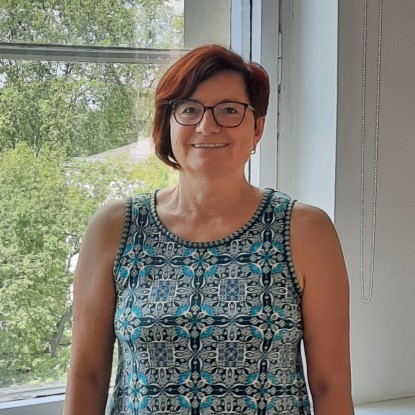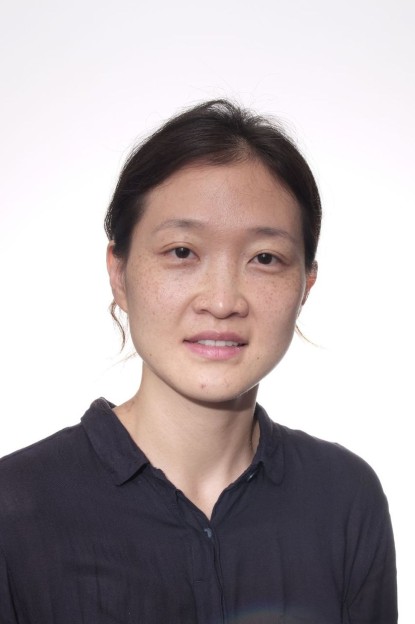General Information
Conditions for admission/immatriculation to the BA. Pedagogy is the general matriculation standard, advanced technical college certificate or comparable foreign certificates. There are currently no admission restrictions (Numerus Clausus). Registration with “Hochschulstart” is required for the application, only then can an online application be submitted. If you have any questions, please contact the Student Advisory Service.
Please also note the general information on the Bachelor's degree programme and the information for prospective students with foreign certificates: Department VIII A – International Admission
Why study a Bachelor's degree in Pedagogy at TU Darmstadt?
Studying at a technical university offers special opportunities for interdisciplinarity and research perspectives in very forward-looking areas. Above all, students benefit from a good relationship with lecturers – in both quantitative and qualitative terms: precisely because the institute is rather small, lecture halls are rarely overcrowded and seminar places are rarely disputed, which prevents unnecessary delays in the degree programme. Many students also report that they can use the personal relationship with their lecturers productively to work on the contents of their studies and to discover and pursue their own research interests.
In addition, the institute offers the opportunity to work as a student assistant in research projects and areas of work and to gain professional experience in the field of science. The mandatory courses offer specific opportunities to combine and deepen topics with other disciplines (keyword: interdisciplinarity).
Students also appreciate the opportunities offered by the city (cultural offerings, cafés, pubs, parks, good public transport connections, etc.) and the excellent location in the Rhine-Main region. Thanks to a strategic alliance between TU Darmstadt and the two neighbouring universities in Frankfurt (Goethe University) and Mainz (Gutenberg University), students also have the opportunity to attend courses at these universities and contribute to their studies.
Study specialisations and structure
The Bachelor of Arts in Pedagogy at TU Darmstadt offers a comprehensive insight into many sub-disciplines of pedagogy. During their studies, students deal with pedagogical issues such as education, upbringing and maturity and practise their critical thinking. The programme also teaches the basics of research theory. A comprehensive internship enables students to gain insights into a pedagogical field of their choice and to put their skills into practice. In addition, participation in an interdisciplinary project enables students to reflect on pedagogical issues from the perspective of another discipline. The mandatory modules also give students the opportunity to pursue their own interests and choose courses from the entire TU Darmstadt course catalogue, thus creating a relevant profile for themselves.
The degree programme is divided into the following areas:
- In the mandatory subject area (86 CP), the basics of pedagogy are discussed and the tense relationship between education and training is addressed in particular. In addition, the basic knowledge for scientific work in the human sciences is taught.
- The internship (15 CP) and the hours spent as a test subject (1 CP) are part of the mandatory subject area and enable students to gain an insight into a chosen educational field of activity (internship) and to become part of human science research.
- The elective subject area (53 CP) focuses on individual sub-disciplines of education.
- The interdisciplinary elective area (24 CP) enables students to broaden their perspectives beyond education and further specialise their personal study interests. Students can choose courses from the entire catalogue of all departments and institutes at TU Darmstadt and work on an interdisciplinary project.
- The final module, including the Bachelor's thesis (17 CP), enables students to pursue a research question based on their own interests. Students have 12 weeks for the writing of their thesis.
Involvement in teaching and research
During the degree programme, students have the opportunity to be involved in research and teaching as a student assistant; an offer that is taken up by the majority of students. The (paid) in-depth examination of the subject of education and the experience gained in university research and teaching make it easier to embark on a university career, but also lead to more intensive learning processes during the degree programme.
Some possibilities for this would be:
- Collaboration in research projects
There are also regular opportunities to work in the field of research. The relevant positions are advertised, but it is also a good idea to send unsolicited applications directly to the various areas of work or to check the department's homepage for current vacancies.
- Assistance with courses
In some seminars, there is the opportunity to accompany them as a student assistant. The student assistants are involved in the planning and realisation of the course and take on various tasks independently and in consultation.
- The management of tutorials
The Institute of General and Vocational Education can look back on a long history of tutorial work, particularly through the tutorial on pedagogical conceptualisation, but there are also regular tutorial support seminars for other courses. The tutors work in tandems.
Semester abroad
Our institute is internationally networked and accordingly there are various opportunities to spend time at a partner university during the Bachelor's programme. Various programmes are available for this purpose:
Erasmus+ is a programme of the European Union for Education, Youth and Sport – it is the ideal programme to get a taste of European university life. Under the name ‘Erasmus’, the EU has been promoting the cross-border mobility of students, university lecturers and university staff in Europe since 1987.
Our Erasmus partner universities are as follows:
- Bogazici University Istanbul (Turkey)
- Carinthia University of Applied Sciences (Austria)
- Instituto Superior Politécnico de Viseu (Portugal)
- Universidad de Sevilla (Spain)
- University of Vienna (Austria)
There are also opportunities to study at TONGJI University in Shanghai (China). Specific information can be found on the pages of the Department of International Affairs.
Study environment
- “ComputerStudienWerkstatt”
- Workspaces in the library
- Student café and event venue “221 m²”
Consultation & information
You are also welcome to contact the Student Advisory Service for further information.
Career prospects
A wide range of career opportunities open up after graduation. Practical experience and relevant letters of recommendation often play a decisive role when starting a career, as they can demonstrate a specialised professional profile.
Pedagogues have various career options to choose from. Potential areas of work include extracurricular education and training, such as adult education (e.g. at adult education centres), political parties/associations, youth welfare institutions and similar organisations. Further employment opportunities arise in human resources development, in the school context and in vocational preparation programmes for young people. Pedagogues can also work in the field of counselling, for example in educational counselling, marriage counselling or in counselling centres of public authorities. In principle, there is also the possibility of working in educational research or at a university if you are suitably qualified and interested.
It is crucial to gain practical experience in relevant institutions at an early stage during your studies in order to prove your practical suitability and establish networks. The chances of finding a promising job increase if you are willing to be professionally mobile, even abroad. A solid knowledge of English is highly recommended, especially if you are specialising in an international field.
Master's programme
In addition, the Institute of General and Vocational Education recommends completing the Master's programme after the Bachelor's programme in order to open up access to even more potential professional fields.
Further information
The lecture series “EX-PÄDs im Beruf”, which takes place every winter semester, provides information on the career paths of graduates from TU Darmstadt.
You can find further information on career opportunities on the following websites, for example:
• Berufsverband der Erziehungswissenschaftlerinnen und Erziehungswissenschaftler e.V. (BV-Paed))
• Berufsverband Deutscher Diplom-Pädagogen und Diplom-Pädagoginnen e.V. (BDDP)
• Berufsverband für Beratung, Pädagogik & Psychotherapie e.V.




